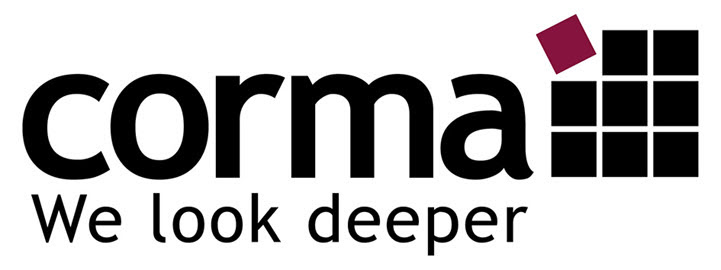Many people can take advantage of your private information on the internet and use it for their purposes, which are, more often than not, malicious. Your data is used every day by marketing companies, advertisers, and sometimes, even hackers who are looking to milk your data for all it’s worth.
Worry not, as we here at corma are prepared to present a selection of solutions bound to help you on your journey to delete personal data. Each customer’s query will be met with our intricate three-step process that ensures all of your data is scrubbed from the internet. Alternatively, we offer three different services that further improve your online data security.
Below, we’ll talk a bit about what kind of information tends to get left off when surfing the internet, how you can remove some of it, and what we can do to wipe your rep sheet clean.
What Data Gets Left Behind?
A lot of people post a lot of things to a lot of websites. Ever since the inception of the modern internet, people have been using it to publish all kinds of things, including personal information. The internet is not a new thing, and it has been in the mainstream for decades.
By this point, every denizen on the internet has left their mark on the global web landscape, no matter how insignificant or prominent, which means that if you want to delete personal data on the internet, the process is that much more challenging.
While the web itself is the combined knowledge and information of the entire human race, this heritage doesn’t necessarily need to include all your private data. You might be shocked to find out how much of your confidential information is floating all around the internet. Some you’ve posted yourself, and other kinds of data might have found its way through malicious intent and malpractice.
It’s safe to say that no one wants to have their personal and private data exposed for the world to see. It’s all a matter of personal privacy, and we here at corma understand that wholeheartedly.
A lot of your private data may be floating all around the internet without you even knowing it. Remember that weak password of your first email account that you created decades ago? Well, it might not have necessarily fallen into obscurity.
People tend to change their passwords only if they have to, and chances are you haven’t changed your password for years. All it takes is one shady website to get a data breach, and your username, email, password, and personal information are all exposed.
What about that odd social media post you made when you were a teenager? We were all trying to be edgy and cool back in the day, but did you know that people can lose their job for a social media post they’ve made ages ago?
Whatever the case may be, the more time you spend using the internet, the more of your data is out there for the world to see. Passwords, old images, old posts, accounts, and even some sensitive information such as banking details gets left behind on the internet.
It’s safe to say that you need to remove all the residual data from the web in one way or the other, and trust us when we say this – it might not always be the easiest thing to do.
Can I remove it myself?
You can remove as much data as you like, but that doesn’t mean you’ll get all of it. As stated above, the more time you spend on the internet, the more data will be floating around. You’ll have to be extremely determined to get every last account, picture, and post removed from the web, and it’s going to require quite a lot of time, effort, and research.
However, this doesn’t mean that the process is impossible – it’s just incredibly time-consuming. The right way to delete personal data is to start by ticking the following boxes and searching these queries:
- Your full name
- Alias or username
- Contact details
- Social media accounts
These will give you more than a couple of results – you need to dig deep enough. However, digging deep isn’t the only thing you need to do if you want to rid the web of your personal information. One of the things you need to consider is that not everything can be found with a simple Google search.
You’ll need to check for information on a selection of search engines such as DuckDuckGo, Yahoo, Google, Bing, Yandex, and many more. You’ll want to search every nook and cranny of the internet for any relevant information related to you and delete all that personal data.
Some information will be buried so deep that you’ll have to scour the deep web to find it, which is going to be extremely challenging unless you know your way around the deep web, which is unlikely.
Our advice to you is not to delete everything you find outright. Whatever you do find, document it in a word document. It will make it far easier to see what you’ve deleted and what you haven’t when you move to removal later down the line.
Can I get everything?
Here’s where the biggest problem comes in. In most cases, you can’t get every single piece of data that’s floating around the internet and relates to you. The internet is massive, and it would take decades for an individual working by themselves to get every minute detail.
If you’re removing the data yourself, it’s only putting a piece of tape on a much more prominent issue. More often than not, information leaks are hidden behind closed doors on the deep web, making them practically inaccessible.
How corma Can Help
If you’re genuinely worried about your privacy and want to keep your information to yourself, your best bet is soliciting the services of a professional data company such as corma.
corma doesn’t merely scour the internet looking for your data and removing single, unwanted entries. We’re more focused on establishing a top-of-the-line digital security standard, including analyzing the internet for any client data.
It’s a very time consuming, intricate, and arduous process, and we use top-tier equipment to handle every client. This approach assures us that every piece of unwanted data is detected, deducted, and deleted from the internet.
Only once we’ve established which data might be harmful and isn’t currently being used by you (such as your active accounts and posts) are the corresponding (Google) entries removed.
Our Three-Step Approach
If you want to delete personal data from the internet, you’ll have to solicit the services of a company such as corma. To rid the world wide web of all your private data, we have a three-step approach.
All the steps are mandatory as only when combined do they provide the best possible results. Our three-step approach was developed and is utilized by a vast network of industry experts who have carefully calibrated our method to streamline it to perfection.
Below, we’ll outline our three-step process to help you understand how we work.
Step 1
The first step of our process is pre-assessment. In this step, we’ll take an inventory of your online information so that it’s easily accessible later down the line.
Through state-of-the-art modern workflows, we conduct a comprehensive visibility audit of your online information to find out just how much of your information is out there. That includes deep-dives into the following queries:
- Google, Bing, and Yandex research through direct operator interfaces
- OSINT Research in open sources/further internet research
- Groups & Forums, Google Groups, Rating Portals, and Clear Net Forum
- Professional (Paid) people search engines
- Current and historical Whois information
- Paid Databases/Collections on Data Leaks
- Social media platforms
- Deep web/Darknet
- Professional press and media archives research
These are the right places to look if you want to dig up any information on any person. In this step, we at corma take a deep dive into every one of these queries, allowing us to gain crucial insight into any of your personal information that might be available on the internet.
How Long Will This Take?
This is a time-consuming process, and we’ll need anywhere from ten to fifteen days from the moment we receive the payment to conduct the necessary research. The timeframe is based on the amount of information about you on the internet.
After we’ve conducted our research, we’ll provide you with a PDF report and a clear Excel spreadsheet highlighting where your information is.
You’ll get a list of links with all of the relevant hits and accompanying information. We’ll be happy to provide you with the lists containing the individual queries’ results with the respective search engines.
Step 2
The second step of our process is the deletion of the private internet data. It might seem straightforward but is quite expansive. The omission of personal customer data rests upon the search engines, and some of them might not comply.
The best way to delete private data from the internet is to root it out of the source, which we will be more than happy to do. We’ll remove only the information you want to be removed, which you will provide based on the information garnered from step one.
All the power is in your hands – you’ll need to instruct us on which information you want to be removed. It will also clarify the possible costs with you and make you a tailor-made offer. In most cases, we’ll be able to remove your desired information and wipe it off the internet.
If the situation is dire and we can’t seem to remove something from the web, we’ll provide you with the assistance of specialist lawyers who can usually finish the job.
If the specialist lawyers can’t finish the job in some wild cases, there’s always the adjustment of corresponding entries by leading SEO experts. With their help, your content’s visibility can be significantly diminished, knocking the results to the very back of search engine pages, where its visibility is practically zero. While this doesn’t precisely delete personal data, it helps hide it significantly.
To summarize, the second step includes:
- Researching contact persons at the content provider
- Sending the cover letter from the sources/providers
- Resubmission for unprocessed cover letters (two reminders)
- Providing alternative means for resolution
- Success control/Final report
How Long Will This Take?
This process can be swift or very time-consuming. It ultimately depends on the responses we receive from the sources and search engines. In general, the process shouldn’t take more than fifteen to twenty days once your payment has cleared.
However, the cost will depend on the information you want to remove and the complexity of the removal process itself.
Step 3
Step three is all about prevention. Any denizen of the internet will know that getting some information out there is practically inevitable, but we’ll help you get as little of your data out there as possible.
To effectively prevent any leaking and misuse of your personal information, you must change the way you browse the web to a more careful, privacy-oriented approach.
Our privacy training will give you all the necessary information on how your private data becomes public knowledge, and we’ll give you the required code of conduct that will coach you on making your surfing safe, private, and anonymous.
We here at corma are prepared to help you with any query you might have, and that’s why we offer additional support in the form of a telephone line and online chat tool. After we’ve educated you on internet privacy, you can make sure that it never again finds its way onto the Internet and that your private data will remain as private as possible.
FAQ
Well, there are quite a lot of dangers if you decide to leave all of your data on the internet. From employers stumbling along with an age-old Twitter post to more dangerous things such as swatting, the hazards of leaving your data exposed are plentiful.
While some will use your data for advertising and marketing purposes, there are far more dangerous reasons why cybercriminals steal private data, such as swatting, identity theft, stalking, and harassment.
Data breaches happen all the time, and all that is required for everything to start deteriorating is one single data breach. If you use the same password for everything, which most people do, the chances are that a single leak on an obscure website could lead to someone hacking into your bank account, which could be disastrous in more ways than one.
A data breach is one of the most dangerous things that can happen to an individual without them even realizing it. Data breaches occur all the time. According to Forbes, in fact, in the first half of 2019 alone, 4.1 billion records were exposed by data breaches.
The most common type of data breaches happens on social media platforms that you use every day, making the prospect of data breaches that terrifying. Depending on where the violation occurred, different kinds of information get leaked.
The information that leaks can range from your full name to your full bank account details and even your SSN. When data breaches do happen, they usually leave residue behind, which makes your information up for grabs, which is why it’s critical to ensure that any unwanted information is removed before it falls into the wrong hands.
Doxxing is one of the most dangerous practices that malicious individuals on the internet indulge in, and most of them do so by accumulating residual private data. Doxxing is when someone exposes your private information, such as your full legal name, address, and other private information.
By broadcasting your private information publicly, you’re exposed to many threats, especially if you’re a public persona.
Doxxing has ruined many private and public residents’ lives, and it could lead to a far more lethal practice, swatting.
The biggest problem with doxxing is that it’s not illegal, and there’s no punishment for the individual who exposes your public information.
While you can delete a lot of your private data from the internet in the form of posts, private accounts, and other details, you can never get all of the information off. Usually, the information that gets left behind is the most incriminating, and accessing it takes a lot of time, effort, and industry expertise.
There’s a lot of software floating around the internet that promises to remove all of your private information. Still, ironically enough, most of it is designed to steal your private information.
There’s no way to remove all of your private data from the internet short of soliciting the services of a professional personal data deletion company such as corma.
You can’t protect yourself from leaving behind residual data short of never using the internet again. Once you hop on the world wide web, you’re always going to leave some data behind, and that’s okay.
The data you leave behind with normal and secure internet surfing is in no way harmful and won’t give hackers the chance to get into your financials. If you want to make sure that you’re always as protected as possible, you’ll need to change your browsing habits.
Never visit any shady websites – always use VPN software, scan your computer for malware, and make sure that all your passwords are as bulletproof as possible.
Even if you take all the necessary precautions, data breaches and leaks do happen more than you might think, so it’s not a bad idea to wipe the web clean of your data once in a while.









